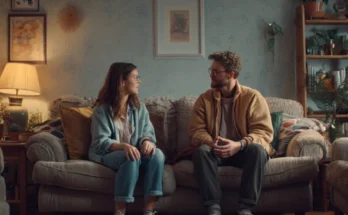He vanished before I could form memories of him. My mother never spoke ill of him—just silence, a void where a father should’ve been. I grew up with questions she couldn’t—or wouldn’t—answer. And when he finally reappeared, decades later, it wasn’t with remorse or warmth. It was with expectation.
He wanted to be “Dad” again. Just like that.
But I wasn’t a child anymore. I had built my life without him—my values, my resilience, my sense of worth. I didn’t need a man who had chosen absence. I refused. Not out of spite, but self-preservation. I couldn’t reconcile the stranger he was with the title he wanted.
My mother, though, urged me to reconsider. She said forgiveness was strength. That people change. That maybe he was trying, in his own flawed way, to make amends. I saw the pain in her eyes—guilt, perhaps, for shielding me from him, or for believing he deserved another chance.
So I met him. Once.
He spoke of regrets, but not responsibility. He asked about my life, but didn’t know how to listen. He wanted connection, but skipped the work of earning it. I left that meeting hollow, not angry—just confirmed in my choice.
Still, I understood something deeper: my refusal wasn’t just about him. It was about protecting the life I’d fought to build. My mother’s insistence came from hope, but mine came from truth. Some wounds don’t need reopening. Some stories don’t need rewriting.
And sometimes, the most powerful act of love is choosing not to let someone back in.


